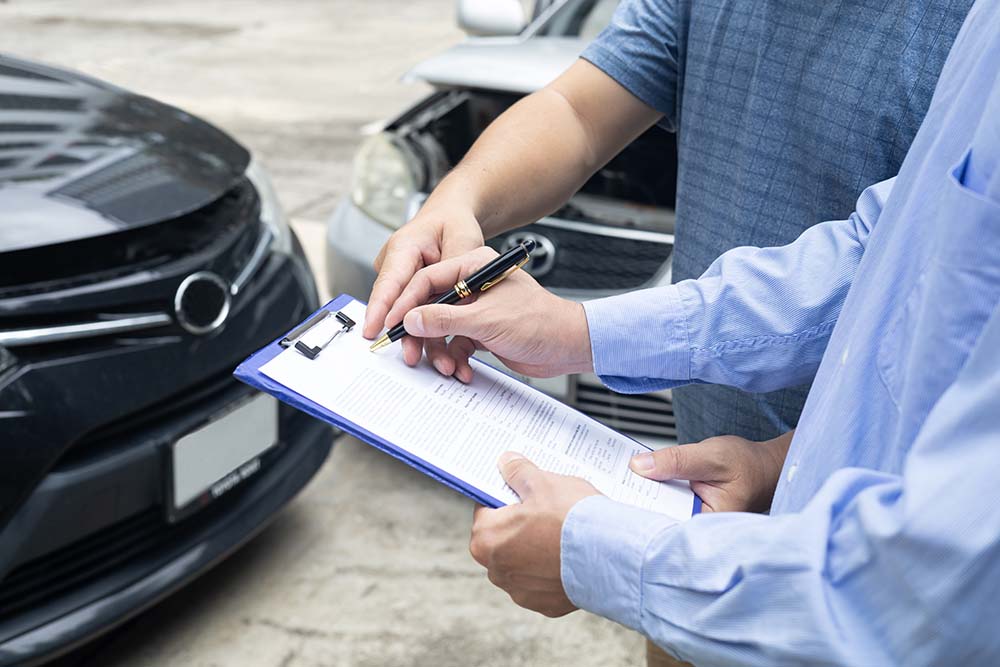If you’ve been involved in a car accident in Georgia, obtaining a Georgia accident report is one of the most important steps you can take. This report provides a detailed, official record of the accident, which is essential for filing insurance claims. Insurance companies rely heavily on the information in accident reports to determine liability, assess damages, and process claims efficiently. Without this critical document, you may experience delays or even denials in your insurance claim. Let’s dive into why the Georgia accident report is crucial for insurance claims and how you can obtain it.
The Role of the Georgia Accident Report
The Georgia accident report, often referred to as the car accident report Georgia or crash report, contains vital information about the accident. Whether you were involved in a minor fender-bender or a major collision, having this document helps clarify what happened during the accident.
Here’s what the Georgia vehicle accident report typically includes:
- Date of the accident: This is essential for identifying when the accident occurred, which is important for both insurance companies and legal cases.
- Parties involved: It lists all individuals involved in the accident, including drivers, passengers, and witnesses.
- Details of the accident: This section covers everything from the location of the crash to road conditions and any contributing factors.
- Report number: Each Georgia accident report is assigned a unique report number, which you’ll need when filing an insurance claim or requesting a copy of the report.
This detailed record is what insurance companies use to determine fault, assess the severity of the accident, and calculate the amount they will pay out.
Why You Need the Accident Report for Insurance Claims
If you’ve been involved in a car accident, filing an insurance claim without the official accident report in Georgia can be challenging. Insurance companies require documentation that supports your claim, and the accident report serves as a verified record of what happened.
Here are some key reasons why the Georgia accident report is crucial for insurance claims:
1. Proving Fault
- One of the most significant aspects of the report is determining who was at fault for the accident. The Georgia State Patrol accident report or the report from local law enforcement includes observations from officers at the scene, witness statements, and other critical details that help insurance companies figure out who caused the accident.
2. Assessing Damages
- Insurance companies will look at the motor vehicle damage documented in the car accident report Georgia to determine how much compensation is needed for repairs or replacements. This section of the report includes information about the condition of the vehicles, the impact of the collision, and any visible damage.
3. Verifying Injuries
- If injuries occurred, the accident report will include information about the individuals who were hurt and the severity of their injuries. This is crucial when filing a claim for medical expenses.
4. Avoiding Disputes
- The police report provides an objective account of the accident, which can prevent disputes between the involved parties and the insurance company. Without it, your claim may be challenged, leading to delays in receiving compensation.

How to Obtain Your Georgia Accident Report
Thankfully, accessing Georgia accident reports online is easier than ever due to advances in technology. You no longer have to visit the police station or wait for a mailed copy. Here’s how you can get your accident report Georgia State Patrol or other law enforcement reports.
1. Online Access
- Many reports are available online through the Georgia Department of Public Safety (GADPS) or the Department of Transportation (GDOT). By visiting their website, you can search for your state patrol accident report using the report number, date of the accident, and other relevant details.
2. Open Records Request
- If your accident report isn’t available online, you can submit an open records request through the Georgia State Patrol (GSP) or the appropriate local law enforcement agency. This may be necessary for certain cases, such as accidents involving investigations or sensitive information.
3. Contact Local Law Enforcement
- If the accident was handled by local police rather than the Georgia State Patrol, you may need to contact your local police department to request the report. Always clarify which agency handled the accident when speaking to officers at the scene.
What Happens if You Don’t Have the Report?
If you try to file an insurance claim without the Georgia vehicle accident report, the process will likely be more complicated and time-consuming. The insurance company will need all the details contained in the report, including the date of the accident, the parties involved, and any contributing factors. Without it, you may face delays in processing your claim or, worse, the claim could be denied.
Additionally, the accident report helps protect you legally by documenting the events of the accident. If disputes arise over fault or damages, the car accident report Georgia serves as a reliable, unbiased record of what happened.
The Role of Law Enforcement in Georgia Accident Reports
When an accident occurs in Georgia, law enforcement officers are called to the scene to document the incident. This includes officers from both the Georgia State Patrol GSP and local law enforcement agencies. Their role is to gather information, assess the situation, and complete the official accident report.
1. Georgia State Patrol
- The Georgia State Patrol typically handles accidents on highways and rural areas, providing detailed reports that are later used in insurance claims and legal cases. If the Georgia State Patrol responded to your accident, you’ll need to contact the GSP or access your report online through the Georgia Department of Public Safety website.
2. Local Law Enforcement
- For accidents within city limits, local police are usually the ones who respond. In these cases, the report will be filed with the local law enforcement agency, but it’s still just as crucial for your insurance claim.
How the Georgia Department of Transportation Uses Accident Reports
The Georgia Department of Transportation (GDOT) plays a key role in improving road safety across the state. By collecting data from accident reports, they can analyze crash trends and make necessary changes to infrastructure, such as improving signage, modifying intersections, or implementing new safety measures.
Though GDOT isn’t directly involved in insurance claims, the data from your accident report can influence future road safety improvements that benefit all Georgia drivers.
The Bottom Line: Don’t Overlook the Importance of Your Georgia Accident Report
Obtaining a Georgia accident report is not just a formality – it’s a crucial step in ensuring that your insurance claims are processed smoothly. This official record of your accident provides the necessary documentation for proving fault, assessing damages, and avoiding disputes. Whether it’s a minor accident or a major collision, the accident report will be the backbone of your insurance claim.
So, if you’re involved in a car accident, don’t wait to get your report. Whether you access it online, file an open records request, or contact your local police department, having this document on hand will make the insurance claims process much easier.
